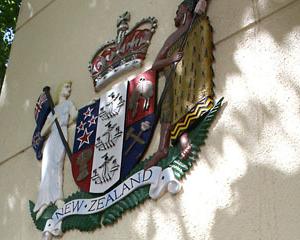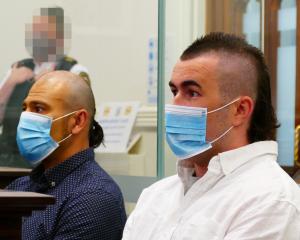A High Court judge today declined to give three men facing life imprisonment for murdering Wanganui toddler Jhia Te Tua minimum non-parole periods of 17 years - because they shot her from outside the property.
Instead, two of the men received non-parole periods of 15 years, and a third, who showed some remorse, will serve a minimum of 12-1/2 years.
Two-year-old Jhia, daughter of a Black Power member, was killed on May 5, 2007 by a bullet fired into her parents' Puriri St home from one of three cars filled with 14 Mongrel Mob members.
It was one of several shots fired at Black Power members in the front yard. One of their bullets went through the chest of Jhia, who was asleep on a couch.
The law provides for a minimum 17-year non-parole period in the case of serious crimes involving home invasion.
However, Justice Gendall said the shot fired from the road did not constitute intrusion, and the murderous intent was towards the Black Power members outside the house.
"It is not possible, in my judgement, to stretch the law to the factual circumstances here," Justice Warwick Gendall said in the High Court at Wellington today.
Crown prosecutor Grant Burston had sought a minimum of 17 years before the three could be considered for parole, and said Jhia was vulnerable because of her age, and that she was killed inside the house - exceptional circumstances requiring a strong response.
But Justice Gendall said sentencing judges did not have the time and resources to provide definitive analysis of complex legal issues such as Section 104 of the Sentencing Act.
"Where offenders are outside a property... and they never intended to intrude onto the dwelling place, its grounds or otherwise, it's hard to envisage Section 104 would normally apply," he said.
Justice Gendall noted the sentence for murder was life imprisonment with no release date, and minimum non-parole periods simply told the parole board not to even consider an application for parole.
Though the non-parole period had to be at least 10 years, the life sentences of the man who fired the .303 rifle, Hayden John Wallace, 27, and the man who instructed him to shoot, Karl Unuka Check, 26, were accompanied by minimum non-parole periods of 15 years.
Wallace, who continued to deny responsibility and had 48 previous convictions, and Check - a prime mover and instigator of the incident with 17 previous convictions - each also received concurrent sentences for being part of an organised criminal group. Wallace received three years, and Check two years, as well as six months for assault.
Ranji Tane Forbes, 21, was sentenced to life imprisonment with a 12-1/2-year non-parole period, which Justice Gendall said was a "small indulgence" because Forbes had shown some genuine remorse.
The driver of one of the three cars, Forbes also received three years - to be served concurrently - for participating in an organised criminal group and his vehicle was confiscated. He had 11 previous convictions.
The trio were found guilty of murder at a five-week trial late last year.
Two other men who changed their pleas late in the trial were also sentenced for the killing.
Patched gang members Godfrey Thomas Muraahi, 28, and Erueti Chase Nahona, 20, each belatedly pleaded guilty to manslaughter, but Justice Gendall said he saw little genuine remorse.
They were each sentenced to serve a non-parole period of six years during their terms of 10-1/2 years for Muraahi and 10 years, three months for Nahona.
Both received sentences of three years for participating in an organised criminal group, and Nahona received a further six months for assault earlier in the day of the killing - all of these terms to be served concurrently.
Richard Puohotaua, 28, was found not guilty of murder or manslaughter but was sentenced to three years for being part of an organised criminal group. He was a passenger in one of the three cars in the Mongrel Mob convoy and claimed not to know of the gun.











